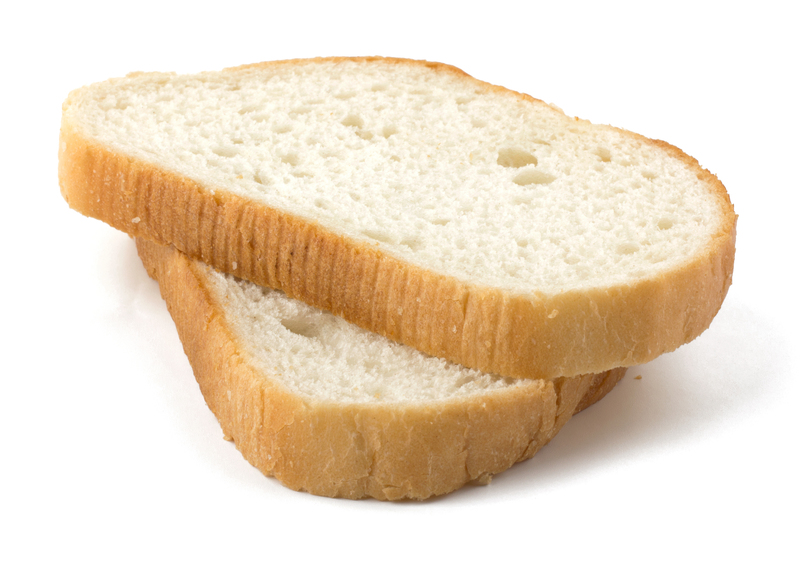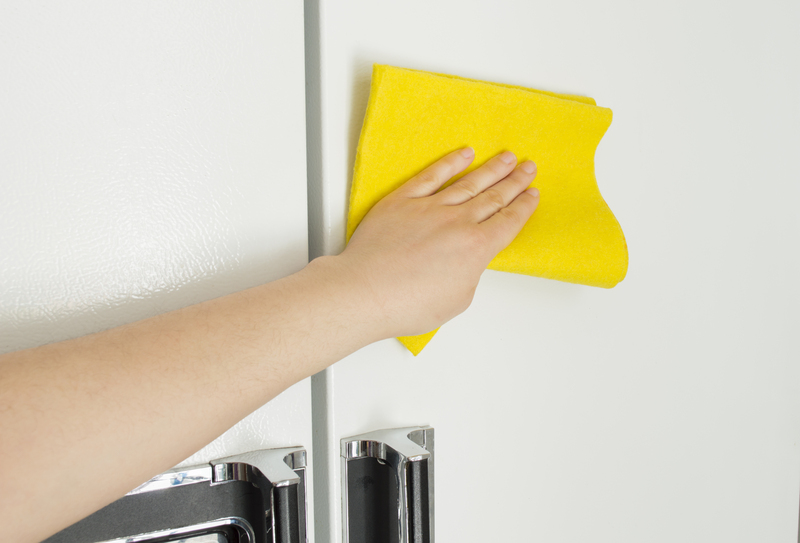Unleash the Brilliance: Cleaning Jewellery
Posted on 21/09/2025
Unleash the Brilliance: Cleaning Jewellery
Jewellery--whether an heirloom diamond ring, a dazzling gold necklace, or a cherished silver bracelet--holds immense sentimental and monetary value. Over time, however, exposure to oils, lotions, dust, and daily wear can dull even the most radiant pieces. Keeping your collection sparkling doesn't just enhance its beauty; it preserves its legacy. If you're curious about effective methods to clean and care for jewellery, you've come to the perfect place.

Why Regular Jewellery Cleaning Is Essential
Dirt, grime, sweat, and environmental pollutants can build up on your favourite adornments, causing them to lose their shine. Regular cleaning not only restores their brilliance but also prevents long-term damage to precious metals and gemstones. Let's delve into the science and art of restoring that "just bought" sparkle, and empower you to unleash the brilliance of your jewellery.
The Science Behind Jewellery Dulling
- Natural Oils: Skin oil transfers onto jewellery, causing a film that attracts dust.
- Environmental Pollutants: Airborne particles can accumulate and create a dulling effect.
- Cosmetics and Lotions: Makeup, perfume, and creams often contain chemicals that react with metals and gems.
- Oxidation: Especially in silver, exposure to air can cause tarnishing.
Understanding these factors underscores the importance of regular maintenance and proper storage, which goes hand-in-hand with effective jewellery cleaning.
Home Solutions for Cleaning Jewellery
You don't always need professional services to restore the brilliance of your jewellery. Many household items offer effective ways to get the job done, particularly for non-porous, durable pieces.
Gentle Soap and Water
The gentlest and safest cleaning method for most types of jewellery, especially gold and platinum, is a mild soap solution:
- Mix a few drops of dishwashing liquid in a bowl of lukewarm water.
- Soak the jewellery for 10-15 minutes.
- Use a soft toothbrush to gently scrub away dirt, focusing on settings and crevices.
- Rinse thoroughly under warm water and pat dry with a soft lint-free cloth.
Tip: Never use hot water on delicate gemstones; thermal shock can cause cracks or damage.
Baking Soda and Vinegar Cleansing
Baking soda offers both abrasive and restorative properties. To try this method:
- Make a paste of baking soda and a little water for gold and silver jewellery.
- Rub gently using a soft cloth; avoid using on delicate gemstones.
- Rinse with clean water, dry, and polish with a microfibre cloth.
Silver jewellery benefits from an extra step: soak your piece in a solution of half white vinegar and half water for two hours prior to scrubbing with baking soda paste.
Ammonia Solution for Dazzling Diamonds
Diamonds and some hard stones respond well to ammonia-based cleaning solutions. Here's how:
- Mix one part clear ammonia with six parts water.
- Soak only for 30 seconds to 1 minute. Prolonged exposure can weaken some metal settings.
- Gently brush and rinse with clean water.
Warning: Do not use ammonia on pearls, opals, or other porous stones.
Professional Jewellery Cleaning Techniques
Investing in a professional cleaning session every six months to a year can provide expert-level maintenance--especially for valuable, vintage, or complex pieces.
- Ultrasonic Cleaners: These machines send high-frequency sound waves through a liquid, safely shaking loose grime and dirt from settings and crevices.
- Steam Cleaning: Professional steamers deliver a blast of high-pressure steam, powerfully removing gunk without harsh chemicals.
- Polishing Cloths: Jewelers use specialized cloths and pastes, restoring lustre and removing fine scratches.
For antique, fragile, or uniquely set pieces, always trust a certified jeweler. DIY ultrasonic or aggressive chemical use can inadvertently cause damage.
Caring for Different Types of Jewellery
Gold Jewellery
Gold resists tarnish but is prone to scratches and dings. For gold jewellery cleaning:
- Stick to gentle dish soap solutions.
- Avoid chlorine and strong detergents.
- Dry and store in a soft pouch.
Silver Jewellery
Silver easily tarnishes, but it can regain brilliance with a proper clean:
- Use a silver polishing cloth for regular maintenance.
- Baking soda paste or commercial cleaner can remove tarnish.
- Store with anti-tarnish strips.
Diamond and Gemstone Jewellery
For jewellery set with gemstones, particular care is necessary:
- Inspect prongs and settings frequently.
- Use only soft brushes and avoid abrasive pastes.
- Check gemstone-specific care guidelines--e.g., do not soak opals or pearls.
Pearl Jewellery
Pearls are delicate and porous. Over-cleaning or improper solutions can ruin their lustre:
- Wipe pearls gently with a damp cloth after each wear.
- Avoid soaking; never use chemicals or abrasives.
- Restring pearls periodically if worn frequently.
Common Jewellery Cleaning Mistakes to Avoid
Even the best intentions can lead to costly mistakes. To truly unleash the brilliance of your jewellery, steer clear of these pitfalls:
- Using harsh chemicals: Bleach and acetone can erode alloys and damage stones.
- Over-brushing: Vigorous brushing can loosen prongs and dislodge gems.
- Ignoring settings: Dirt in claws and crevices can compromise structure and sparkle.
- Not rinsing well: Residual soap can create a new film, diminishing shine.
- Improper storage: Tossing pieces into one box can cause tangling and scratching.
Jewellery Cleaning Tips and Best Practices
- Perform quick cleans weekly: Use a soft cloth to wipe down daily-worn pieces, especially rings and bracelets.
- Deep clean monthly: Soak and brush all frequently worn jewellery to maintain their brilliance.
- Check for repairs while cleaning: Inspect for loose stones, bent prongs, or surface defects requiring a jeweller's attention.
- Store appropriately: Separate pieces with soft cloth or pouches to avoid scratching and tarnishing.
- Travel smart: Use travel cases with individual slots for rings, necklaces, and earrings.
- Remove jewellery during heavy work: Cleaning, gardening, and gym activities can expose jewellery to harsh chemicals and physical harm.
When to Seek Professional Jewellery Cleaning
Not every piece is suited for home care. Consult a jeweller for:
- Antique jewellery and family heirlooms
- Items set with emeralds, opals, pearls, or other delicate stones
- Jewellery with intricate or fragile settings
- Signs of damage, such as loose stones or bent clasps
Professionals utilize advanced cleaning tools and can perform necessary repairs or preventive maintenance while restoring brilliance.

FAQ: Mastering Jewellery Maintenance
How often should I clean my jewellery?
For items worn daily, such as wedding bands or favourite necklaces, weekly wipes and monthly deep cleans are ideal. Pieces worn occasionally can be cleaned before and after use.
What's the safest cleaning method for all jewellery types?
A mild soap and water solution with a soft brush is safe for most metals and hard stones and is the best starting point if you're unsure.
Are ultrasonic cleaners safe for all jewellery?
No. Avoid ultrasonic machines for items set with pearls, opals, emeralds, or antique/intricate settings. When in doubt, consult a professional jeweller.
Conclusion: Reveal Your Jewellery's Shine
Cleaning jewellery is more than an act of preservation; it's a celebration of beauty, craftsmanship, and the stories each piece holds. With a blend of regular maintenance and informed home or professional cleaning techniques, you can unleash the brilliance of your jewellery collection for years to come.
Embrace the ritual--restore sparkle, maintain value, and ensure your precious pieces always catch the light just as the day you first wore them. Start your journey to jewellery brilliance today!
```


